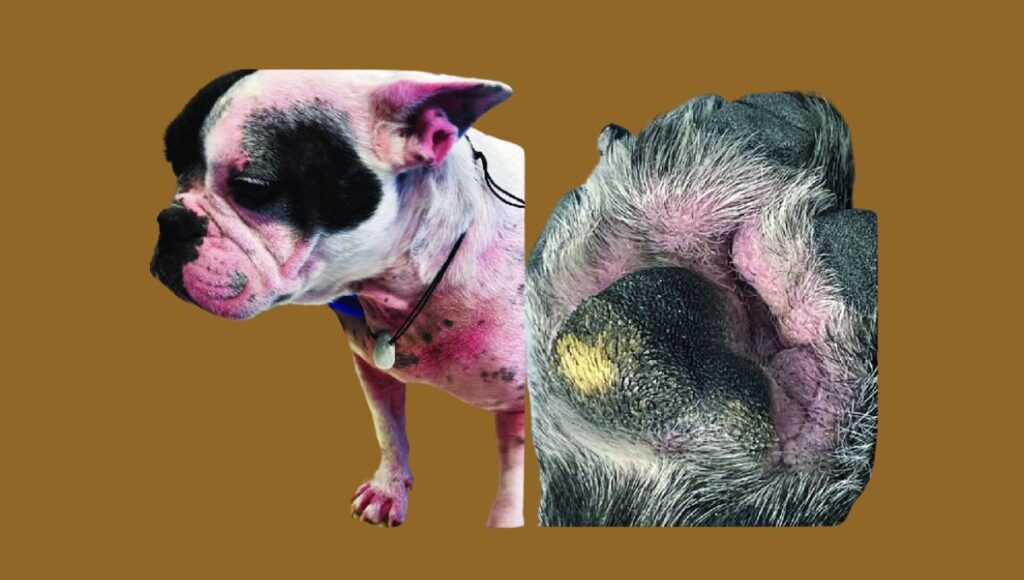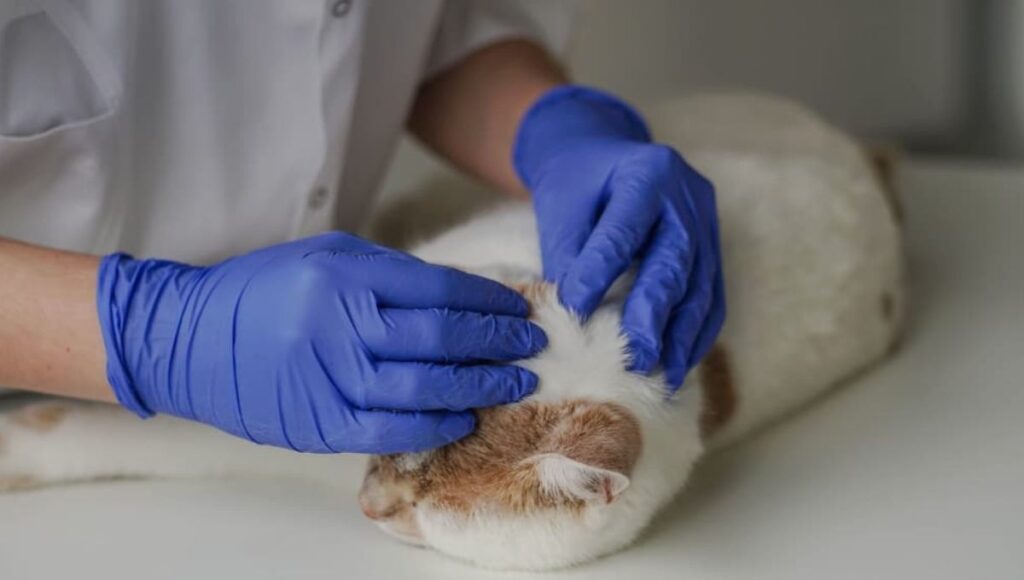French Bulldog Allergies: A Comprehensive Guide for Owners
French Bulldogs are beloved for their charming personalities and unique appearance, but like many purebred dogs, they can be exposed to various health problems. One of the most common concerns is French Bulldog allergies, which can significantly affect their quality of life. In this guide, we’ll explore essential French Bulldog information about allergies, the most common allergies French Bulldog owners should be aware of, and how to manage these allergies to keep your pet happy and healthy.
What Causes Allergies in French Bulldogs?
Allergies in French Bulldogs can result from various environmental, dietary, and contact factors. These charming French Bulldogs possess a delicate nature, making them particularly accessible to specific allergens. Let’s explore the typical allergies that many French Bulldog owners face:
1. Environmental Allergies (Atopy)
French Bulldogs often suffer from environmental allergies, which occur when their immune system overreacts to substances like pollen, dust mites, and mold. This type of allergy is also known as French Bulldog skin allergies and can lead to symptoms like frequent scratching, redness or irritation of the skin, and hair loss. If your French Bulldog experiences these allergies, you might observe that their symptoms become more severe during specific seasons when pollen levels rise.

2. Food Allergies
A number of French Bulldogs are exposed to food allergies. Typical allergens include proteins found in beef, chicken, dairy products, and grains. These allergies can lead to digestive problems such as vomiting and diarrhea, as well as French Bulldog skin rash and itchiness. If your French Bulldog shows persistent skin or digestive issues, it could be due to a food allergy.

3. Flea Allergy Dermatitis
Flea allergy dermatitis (FAD) is another widespread issue among French Bulldogs with skin allergies. The saliva of fleas can provoke strong allergic responses in these dogs, resulting in extreme itching, redness, and potential infections. Even a single flea bite can cause your French Bulldog significant discomfort.

Recognizing Symptoms of Allergies in French Bulldogs
French Bulldogs are known for their sensitive skin and can suffer from a variety of allergy-related symptoms. If your dog is dealing with allergies, you might notice the following signs:
- French Bulldog itching and scratching excessively
- French Bulldog skin rash, particularly around the belly, paws, and armpits
- French Bulldog dermatitis, with symptoms including dry, flaky, or greasy skin
- Recurring ear infections, often requiring the use of products like Petpost ear wipes
- Licking or biting at their paws (If you’re wondering how to get a French Bulldog to stop licking paws, this may be due to an allergy)
Allergic reactions may also lead to secondary bacterial or yeast infections, further complicating the management of your French Bulldog’s condition.
Managing French Bulldog Allergies
Once you’ve identified that your dog is suffering from allergies, it’s essential to find an appropriate treatment plan. Here are several methods for managing French Bulldog skin allergies:
1. Medications
If your French Bulldog is suffering from allergies, your veterinarian might suggest using antihistamines or steroids to alleviate inflammation and itching. In more serious situations, they may prescribe immunotherapy, which involves allergy shots or oral drops, to help your dog become less sensitive to certain allergens.
2. Topical Treatments
Topical treatments like medicated shampoos can soothe irritated skin. For dogs with chronic skin issues, antiseborrheic shampoos can help manage greasy or flaky skin that results from seborrhea, a condition that may be exacerbated by allergies. Regular baths with hypoallergenic or antiseborrheic shampoos can help relieve discomfort and remove environmental allergens from your dog’s coat.
3. Dietary Adjustments
If your French Bulldog has food allergies, transitioning to a limited-ingredient or hypoallergenic diet can significantly improve their health. It’s important to identify the exact food causing the allergy by conducting an elimination diet under your veterinarian’s guidance.
4. Flea Control
Using flea prevention methods is critical, especially for dogs with flea allergy dermatitis. Regular use of flea preventatives will help avoid flare-ups and keep your dog comfortable.
5. Ear Infections
If your French Bulldog frequently suffers from ear infections due to allergies, cleaning their ears with products like Petpost ear wipes can help. Keeping the ears clean and dry can prevent infections from taking hold, especially for dogs exposed to chronic ear issues.
Back Problems in Bulldogs and Allergy Management
In addition to allergies, back problems in Bulldogs can make it difficult for your dog to move around or scratch themselves when they feel discomfort due to allergies. French Bulldogs are exposed to spinal conditions such as intervertebral disc disease (IVDD), which can lead to pain and limited mobility. If your dog is dealing with both allergies and back problems, it’s essential to manage both conditions simultaneously. Providing soft bedding, avoiding high-impact activities, and using appropriate medications can help alleviate pain while addressing their allergy symptoms.
Prevention of Allergies in French Bulldogs
While you cannot fully prevent allergies in French Bulldogs, you can take steps to reduce their exposure to allergens and manage their symptoms effectively:
- Regular grooming: Bathe your French Bulldog regularly using hypoallergenic or antiseborrheic shampoos to remove environmental allergens and soothe irritated skin.
- Flea prevention: Use flea control products year-round to avoid triggering flea allergy dermatitis.
- Keep the home clean: Regular vacuuming, dusting, and the use of air purifiers can help reduce indoor allergens like dust mites and pollen.
- Hypoallergenic diet: Ensure your French Bulldog follows a diet that avoids known allergens, especially if they’ve been diagnosed with food allergies.
Many individuals question the validity of the hypoallergenic label associated with French Bulldogs. It’s important to note that no dog breed is completely free of allergens. Although French Bulldogs tend to shed less hair compared to other breeds, they still generate dander that can provoke allergic responses in those who are sensitive.
How to Get a French Bulldog to Stop Licking Paws?
Excessive paw licking in French Bulldogs can be a sign of underlying allergies or dermatitis. If you’re struggling with how to get a French Bulldog to stop licking paws, consider the following tips:
- Check for allergies: Paw licking is often due to environmental or food allergies. Consult your vet to identify and treat the cause.
- Use a cone or booties: While treating the underlying issue, you may need to prevent your dog from licking their paws by using a cone or protective booties.
- Medicated wipes: Clean your dog’s paws after walks or outdoor play to remove potential allergens.

Conclusion
Allergies can significantly impact the quality of life of your French Bulldog, but with the right approach, they can be managed effectively. From environmental and food allergies to French Bulldog skin allergies and French Bulldog dermatitis, understanding the root cause of the allergy is key to proper treatment. By taking proactive measures like maintaining flea control, adjusting their diet, and using the right medications or topical treatments, you can help your French Bulldog live a happy and comfortable life.
FAQs
1. What are the common signs of allergies in French Bulldogs?
Common signs include itching, redness, ear infections, watery eyes, and gastrointestinal issues like diarrhea or vomiting.
2. What causes allergies in French Bulldogs?
Allergies can be triggered by environmental factors (like pollen or dust mites), food ingredients (such as grains or certain proteins), or fleas and other parasites.
3. How can I determine if my French Bulldog has allergies?
A vet can conduct tests to identify specific allergens. Keeping a diary of your dog’s symptoms and dietary changes can also help pinpoint triggers.
4. Are certain breeds more prone to allergies than others?
Yes, French Bulldogs and other brachycephalic breeds are generally more susceptible to allergies due to their unique anatomy and skin folds.
5. Can I treat my French Bulldog’s allergies at home?
While some mild symptoms may be managed with over-the-counter antihistamines or topical treatments, it’s best to consult your veterinarian for appropriate diagnosis and treatment options.
6. What dietary changes might help manage my dog’s food allergies?
Switching to a hypoallergenic diet or limited ingredient diet can help reduce allergic reactions; however, any dietary changes should be discussed with a vet first.
7. Is there a way to prevent my French Bulldog from developing allergies?
While you can’t completely prevent allergies, maintaining a clean environment, regular grooming, and feeding high-quality food may help minimize exposure to allergens.
8. When should I take my French Bulldog to the vet for allergy concerns?
If you notice persistent symptoms such as intense scratching, frequent ear infections, or gastrointestinal upset that lasts longer than a few days, it’s time for a veterinary visit.







